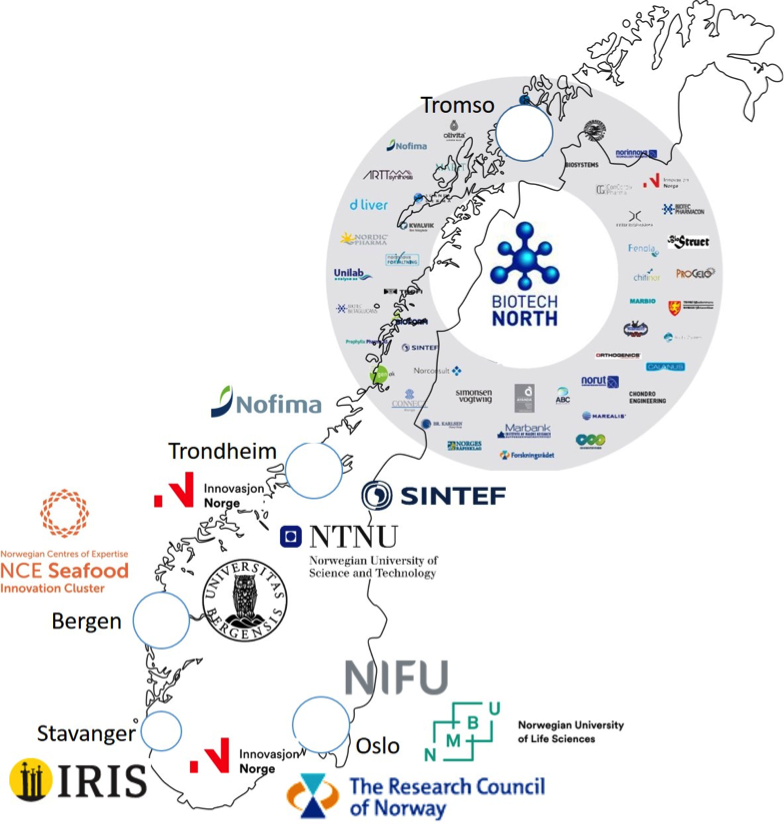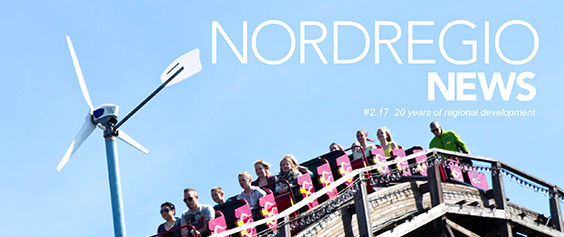The Nordic thematic group on innovative and resilient regions 2017-2020 aims to provide the Nordic regions with updated knowledge, applicable tools, and good practices regarding future competitiveness and well-being. Innovation has been the focus of regional development for decades in the Nordic regions. Increased economic turbulence, especially the global financial and economic crisis that affected most of the Nordic regions in 2008- 2010, has caused resilience to emerge as an important concept in regional development. Regional resilience is about not only reacting to crises, but also proactively building up regional competences to meet the forthcoming changes and challenges.
The Nordic working group on green growth – innovation and entrepreneurship 2013-2016 paving the way
The newly established Nordic thematic group on innovative and resilient regions was preceded by the Nordic working group on green growth – innovation and entrepreneurship. In 2013-2016, the working group focused on the Nordic bioeconomy, cleantech, the circular economy and industrial symbiosis from the regional viewpoint. The working group identified and analysed Nordic green innovations, companies, projects, and good practices in both urban and rural Nordic regions. Moreover, the working group tackled issues such as digitalisation as ways of opening additional opportunities for green growth in the Nordic countries and regions. Green growth and green transition remain important elements of the new thematic group as well. The thematic group is interested in the relations between green transition, innovation and regional resilience in the Nordic regions.

Key research themes 2017-2020
The new thematic group shall implement three partly interrelated, in-depth Nordic studies on resilience, smart specialisation and digitalisation. Why these themes? Resilience is one of the guiding concepts for the Nordic thematic group on innovative and resilient regions. Resilience refers to the ability to leap back or rebound following a disturbance or disruption. For regions, the ability to anticipate and prepare for forthcoming crises is equally important. During the kick-off event of the Nordic thematic group in February 2017, the participants identified a need to further discuss and elaborate on the term ‘resilience’ and its implications for Nordic regional development, especially from the viewpoint of economic resilience. Smart specialisation is the basis of the current regional innovation policy in the European Union. The smart specialisation concept was developed to address the gap between Europe and other global competitors, especially the USA and Japan, in research and development investments. The Research and Innovation strategy for Smart Specialisation at the regional level is a conditionality to be addressed toward the EU regions in order to receive funding from the European Regional and Development Funds. But what is, in fact, smart specialisation in practice in the Nordics? Is there something new with smart specialisation compared to e.g. regional clusters? Interestingly, some Nordic regions outside of the EU, such as Nordland in North Norway, have adopted the smart specialisation concept. Are there differences in applying the smart specialisation concept in regions outside compared with inside the EU? Digitalisation: Nordic regions are frequently seen as forerunners in digital transformation in the EU context. There has been, however, little common learning and value derived from potential synergies across Nordic countries and regions. This in-depth study focuses on digitalisation in Nordic regional development, both in urban and in rural regions. The focus is on the ways digitalisation has been included in regional development strategies and how it is promoted and adopted. We are interested in how Nordic regions implement their digitalisation strategies in practice. What are the challenges and opportunities that regions face when working with digitalisation? Where are the good practices of digitalisation in Nordic regions to be found? An important part of the thematic group work is to provide recommendations and relevant information regarding policy implications to Nordic decision makers. Each in-depth study will be complemented by a Policy Brief that summarises the major relevant results and recommendations.
Article continues below


